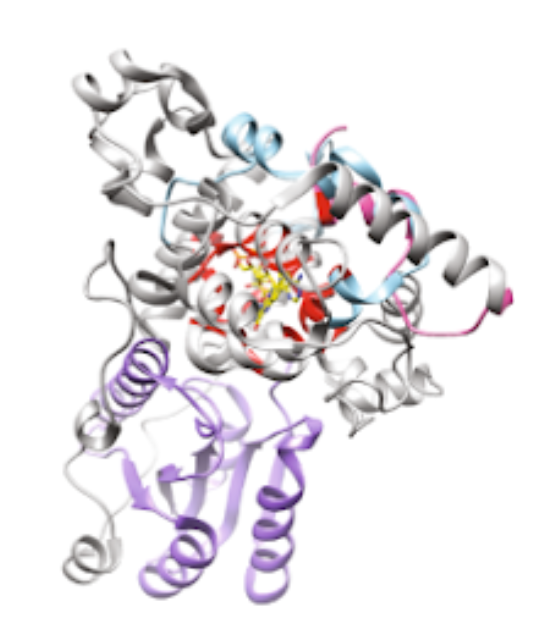The Biochemistry major with Honors is designed to provide a comprehensive overview of modern biochemistry, as well as a significant research experience, resulting in the completion of a written senior thesis and a seminar presentation of the results. The Department will invite juniors to participate in the program generally at the beginning of October. Others are welcome to apply during the Fall semester of their Junior Year. Students in the Honors Program are required to maintain at least a B average both in their major and overall.
A typical Biochemistry undergraduate honors program looks like the following:
Year I
- Majors General Chemistry I with lab (CHEM 1300 & 1305) – Fall
- Majors General Chemistry II with lab (CHEM 1400 & 1405) – Spring
General Chemistry I & II (CHEM 1100 & 1105 and CHEM 1200 & 1205) may substitute for the above
- Foundations in Biology I & II with labs (1203, 1213 & 1204, 1214)
- Calculus I & II (MATH 1350 & 1360)
- General Education Requirements and/or Electives
- First-Year Seminar (CHEM 1500)*
*optional, may be offered in some years
Year II
- Majors Organic Chemistry I with lab (CHEM 2300 & 2105) – Fall
- Majors Organic Chemistry II with lab (CHEM 2400 & 2205) – Spring
Organic Chemistry I & II (CHEM 2100 & 2200) may substitute for the above (CHEM 2300 & 2400)
- Principles of Physics I with lab – (PHYS 2051 & 2056) – Fall
- Principles of Physics II with lab – (PHYS 2052 & 2057) – Spring
Mechanics (PHYS 2101) and Electromagnetic Phenomena (PHYS 2102) may substitute for the above (PHYS 2051 & 2056, 2052 & 2057)
- Multivariable Calculus (MATH 2370) OR Intro Math Statistics (MATH 2140)
- General Education Requirements and/or Electives
Year III
- Biochemistry I & II (CHEM 4100 & 5200)
- Physical Chemistry for Biochem (CHEM 3350) – Fall
- Analytical Methods with Lab (CHEM 3100 & 3105) – Fall
- Experimental Methods in Biochemistry (CHEM 3805) – Spring
- Honors Research I (CHEM 4809)
- Electives
Year IV
- Exp Methods in Biophysical Chemistry (CHEM 4505) – Fall
- Honors Research II (CHEM 4909)
- Honors Thesis (CHEM 4999)
- 2 Advanced Science Electives*
- 1 Advanced Biochemistry Elective**
*Advanced science electives include one semester of Chemistry Research (CHEM 3709 or 3809) or other Chemistry courses numbered 4000 or higher. Advanced electives taught in other departments (e.g. Biology, Computer science, Math, Pharmacology, Physics) should be approved by the Director of Undergraduate studies.
**Courses that can fulfill this requirement include CHEM 5040 and CHEM 54XX. Upper-level courses in Biology and Biochemistry & Molecular Biology Departments may count as electives with prior approval of the Director of Undergraduate Studies.

